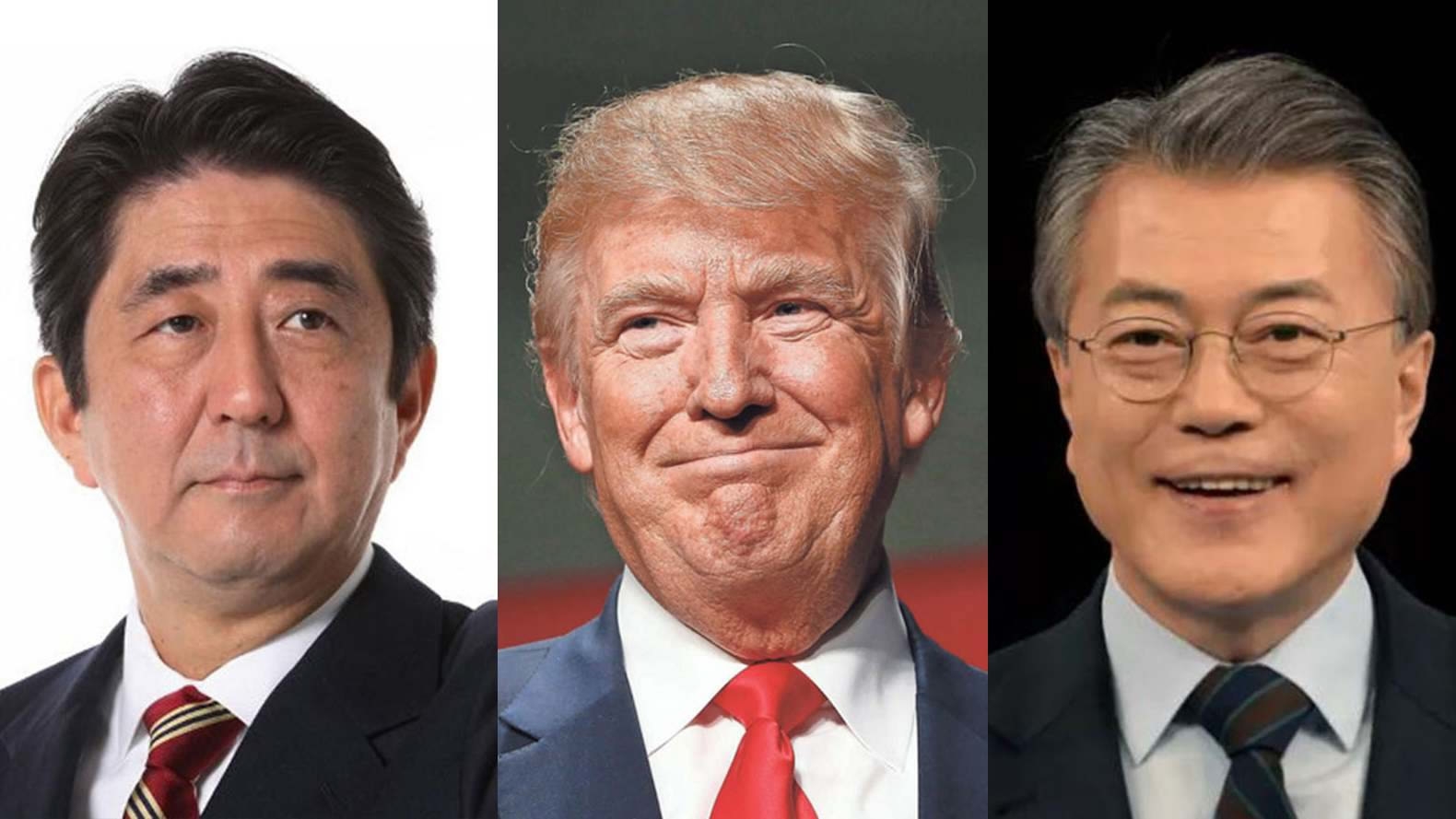US President Donald Trump is traveling to Asia in November, highlighting US engagement in security and trade on a tour that will take him to Hawaii, Japan, South Korea, China, Vietnam, and the Philippines.
The president’s schedule has proved contentious in Tokyo and Seoul: Why is Trump spending three days in Japan but only two in South Korea? Commentators have mulled whether one day less in South Korea indicates a subtle attitude difference towards the countries.
Two days in South Korea
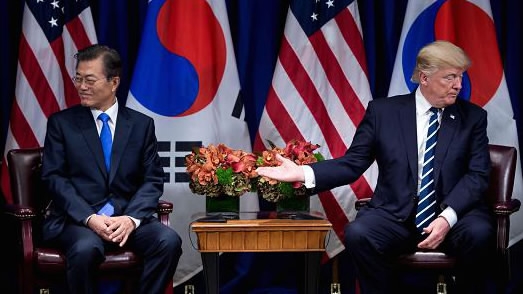
US President Donald Trump (R) gestures to South Korean President Moon Jae-in during the 72nd United Nations General Assembly on September 21, 2017. /AFP Photo
US President Donald Trump (R) gestures to South Korean President Moon Jae-in during the 72nd United Nations General Assembly on September 21, 2017. /AFP Photo
Trump will arrive in South Korea on the morning of November 7 and leave the country in the afternoon of November 8. During the first day of his state visit, Trump and President Moon Jae-in will hold a meeting at the presidential Blue House, before a joint press conference. A state dinner will be held later that day, with various friendship events also prepared.
On the second day, the US leader will give a speech to South Korean lawmakers. During his National Assembly speech, Trump is expected to talk about strengthening the US-South Korea alliance and respond to the nuclear issue on the Korean Peninsula.
The White House said on October 31 that a tight schedule will prevent Trump visiting the Demilitarized Zone (DMZ) separating the Democratic People's Republic of Korea (DPRK) and South Korea.
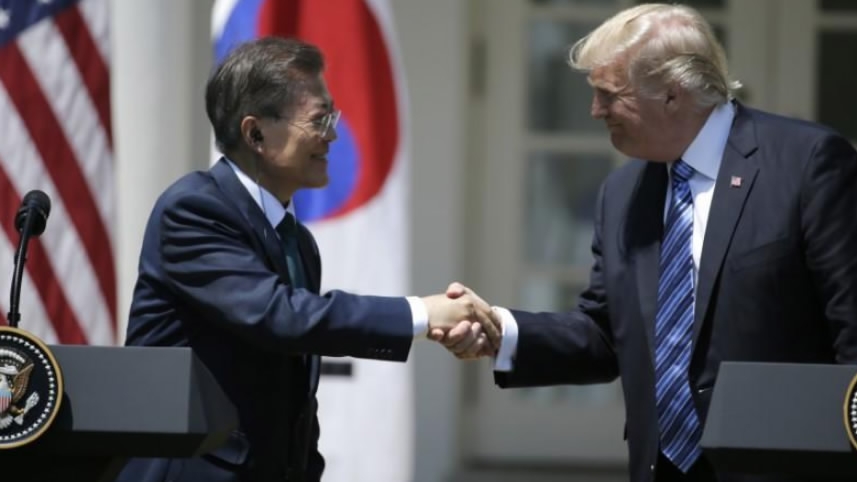
US President Donald Trump (R) greets South Korean President Moon Jae-in prior to delivering a joint statement from the Rose Garden of the White House in Washington, U.S., June 30, 2017. /Reuters Photo
US President Donald Trump (R) greets South Korean President Moon Jae-in prior to delivering a joint statement from the Rose Garden of the White House in Washington, U.S., June 30, 2017. /Reuters Photo
Instead, Trump will visit Camp Humphreys, a military base about 60km south of Seoul. An anonymous senior White House official noted that no US president has previously visited Camp Humphreys. US Vice President Mike Pence, Secretary of State Rex Tillerson and Defense Secretary Jim Mattis have all visited the heavily fortified border.
Faced with a series of provocations by the DPRK, the South Korean government has decided to give Trump the highest courtesy in an effort to consolidate the Seoul-Washington alliance. But opinions are divided on what this state visit will achieve. The potential clash between Moon’s push for peaceful resolution to the DPRK nuclear issue and Trump's hardline rhetoric on military options has caused widespread concern.
One day more in Japan
Trump will visit Japan from November 5-7, during which he is scheduled to meet with US service members and Japan's Self-Defense Force troops, as well as participate in bilateral meetings with Japanese Prime Minister Shinzo Abe.
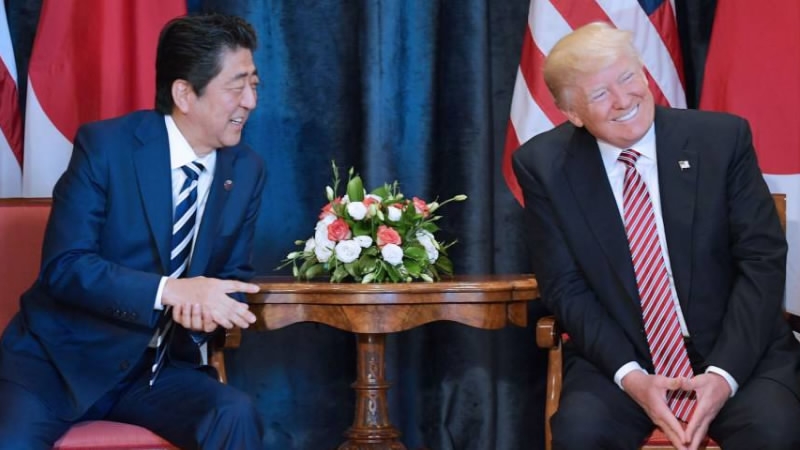
US President Donald Trump takes part in a bilateral meeting with Japanese Prime Minister Shinzo Abe at the Villa Diodoro on the sidelines of the Group of Seven summit in May in Taormina, Sicily, Italy. /AFP Photo
US President Donald Trump takes part in a bilateral meeting with Japanese Prime Minister Shinzo Abe at the Villa Diodoro on the sidelines of the Group of Seven summit in May in Taormina, Sicily, Italy. /AFP Photo
Media reports suggest Abe has arranged for Trump to meet the parents of Megumi Yokota, who was abducted aged 13 from her hometown of Niigata on the Sea of Japan coast in November 1977. Abe has invested considerable political capital into resolving abductions of Japanese nationals by DPRK agents, and the US president has shown an interest in the issue.
Trump has also been invited to tour the Japan Maritime Self-Defense Force’s (JMSDF) largest warship, the helicopter carrier JS Izumo, the lead ship of the Izumo-class, Kyodo news agency reported.
During his visit to Japan, Trump is expected to focus on ways for the allies to "work together to promote a free and open Indo-Pacific region" and "affirm the US-Japan alliance as the cornerstone of regional peace and security amid heightened tensions over the rising nuclear and missile threat posed by the DPRK," the Japan Times reported.
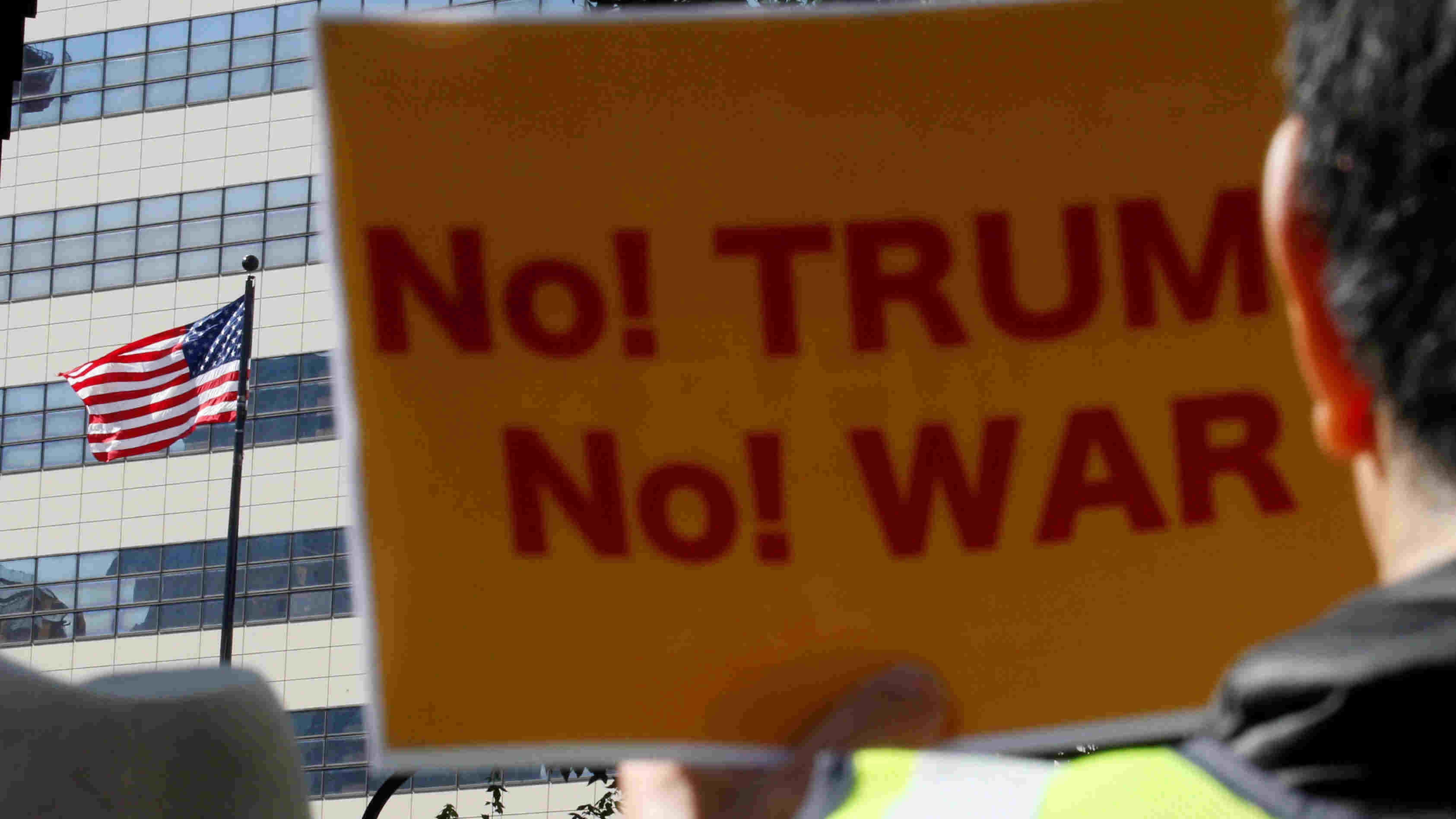
The US national flag flies at the US Embassy as a protester holds a placard during a rally against US President Donald Trump's visit to Tokyo, Japan, November 3, 2017. /Reuters Photo
The US national flag flies at the US Embassy as a protester holds a placard during a rally against US President Donald Trump's visit to Tokyo, Japan, November 3, 2017. /Reuters Photo
Concerns were stoked in Tokyo during the 2016 US presidential campaign, when Trump suggested he might abandon or alter the US security alliance with Japan. Abe, however, has managed to mostly assuage those fears, and bring Trump back into the fold, securing numerous guarantees that the alliance remains "ironclad."
The Japanese government is likely to use the visit by Trump to showcase this progress. "We believe his visit is a perfect opportunity to demonstrate to the world how strong the Japan-US alliance is," said Kotaro Nogami, the deputy chief cabinet secretary of Japan.
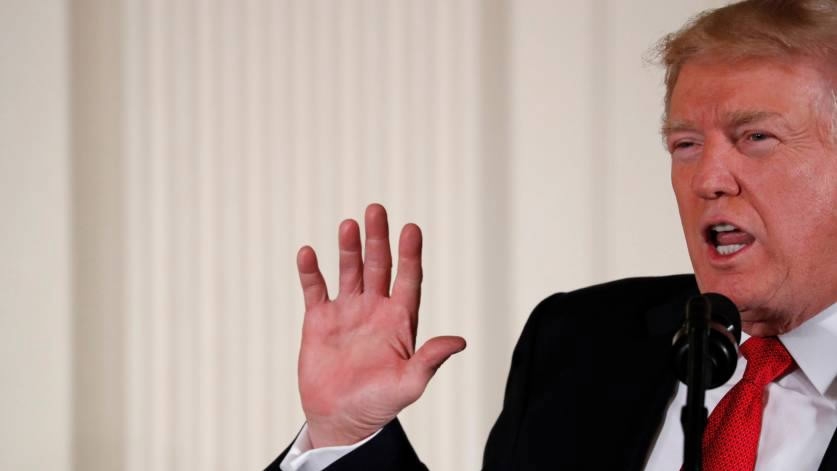
US President Donald Trump will affirm a robust alliance with Japan during a three-day visit to the country starting November 5. /Reuters Photo
US President Donald Trump will affirm a robust alliance with Japan during a three-day visit to the country starting November 5. /Reuters Photo
Is Trump placing Tokyo and Seoul on equal footing?
Trump's engagement with Seoul has differed markedly to his relationship with Tokyo, CNBC reported, based on the frequency and intensity of the US president’s phone conversations with leaders of both Asian countries.
The White House still hasn't nominated an ambassador to South Korea, a position that's been vacant since Trump took office in January. Daniel Sneider, visiting scholar at Stanford University's Walter H. Shorenstein Asia-Pacific Research Center, told CNBC that Trump's "day less" in South Korea "could further heighten the sentiment of neglect in Seoul."
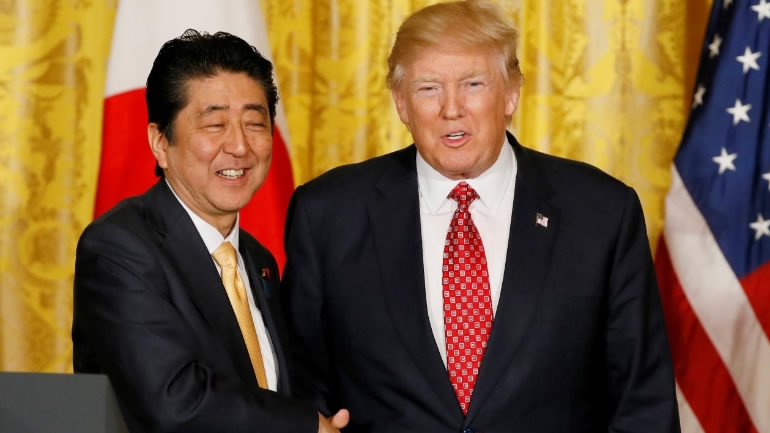
Japanese Prime Minister Shinzo Abe (L) and US President Donald Trump shake hands following their joint press conference at the White House in Washington, US, February 10, 2017. /Reuters Photo
Japanese Prime Minister Shinzo Abe (L) and US President Donald Trump shake hands following their joint press conference at the White House in Washington, US, February 10, 2017. /Reuters Photo
"Koreans tend to get exercised about these things, particularly the Korean media," Sneider added.
Some South Koreans feel their country has been sidelined by Trump during the DPRK crisis. Robert Kelly, associate professor at Pusan National University said "Korea being ignored is a genuine concern." He noted that Trump has dominated global debate about the DPRK with his flamboyant style.

